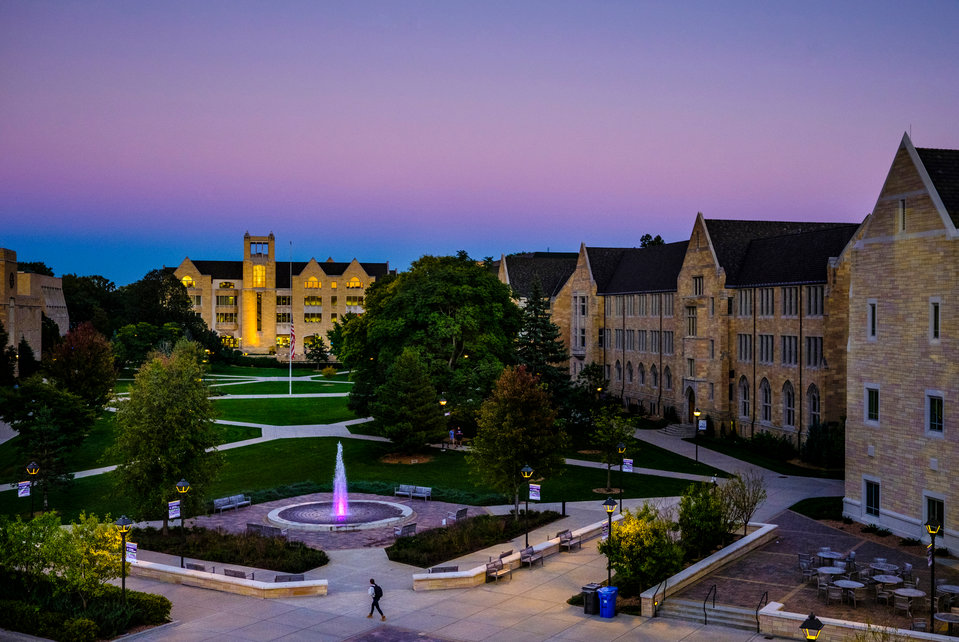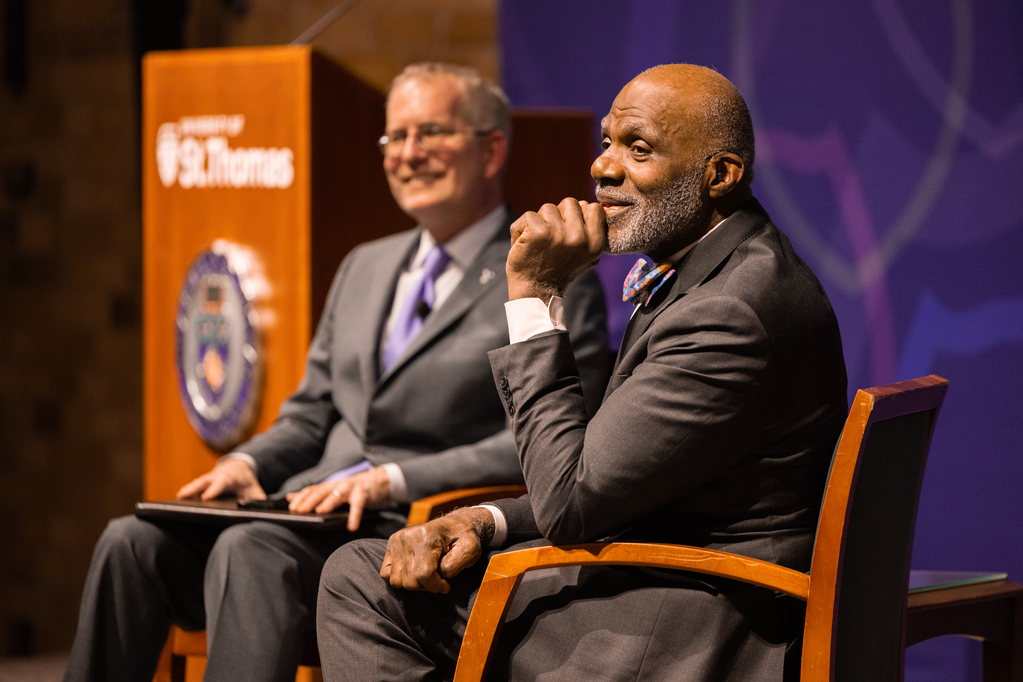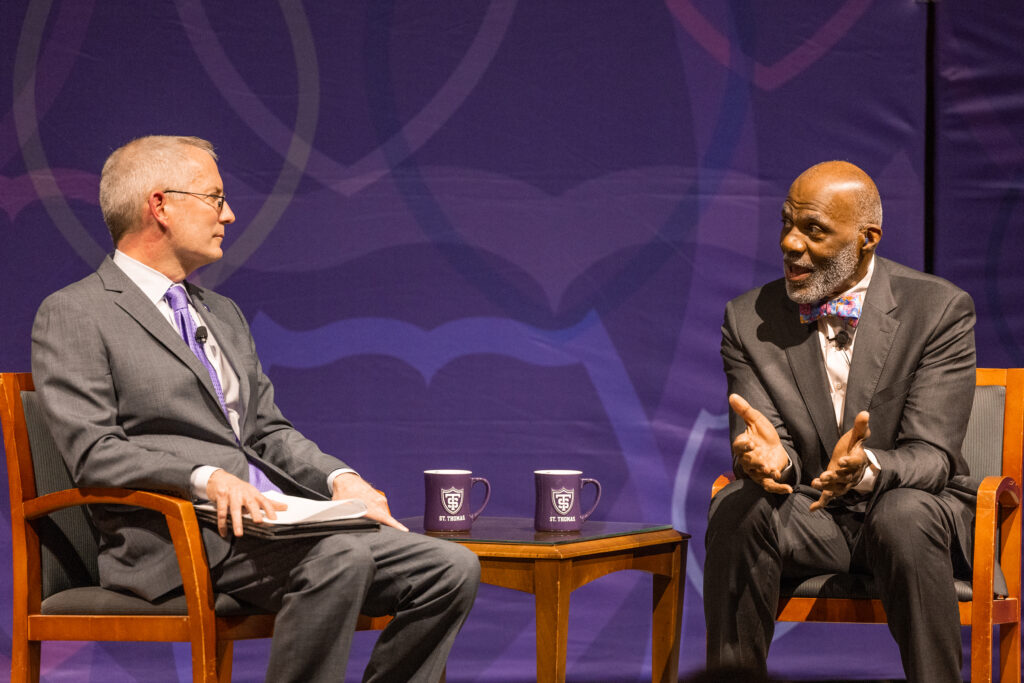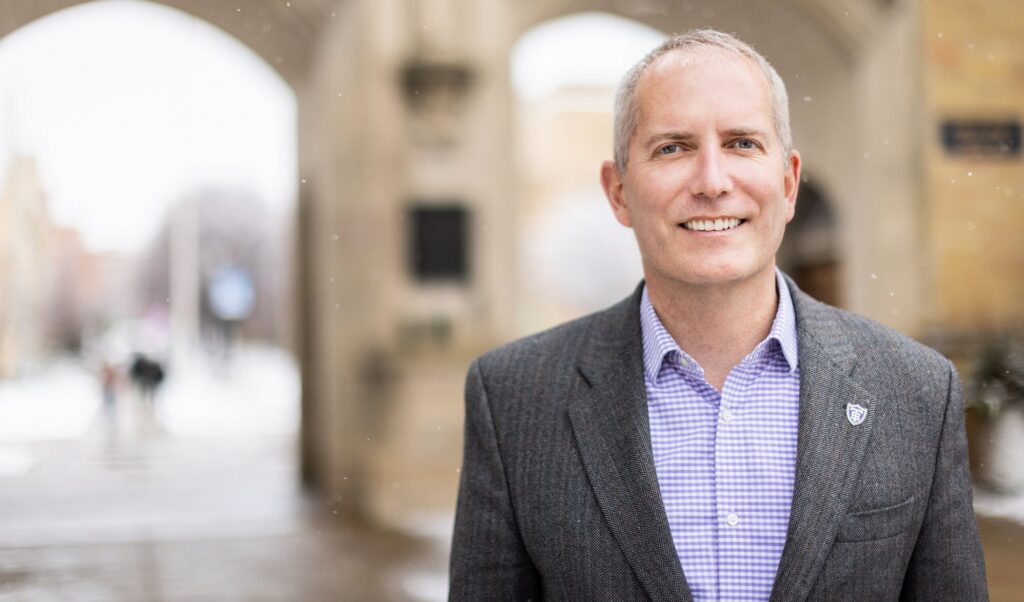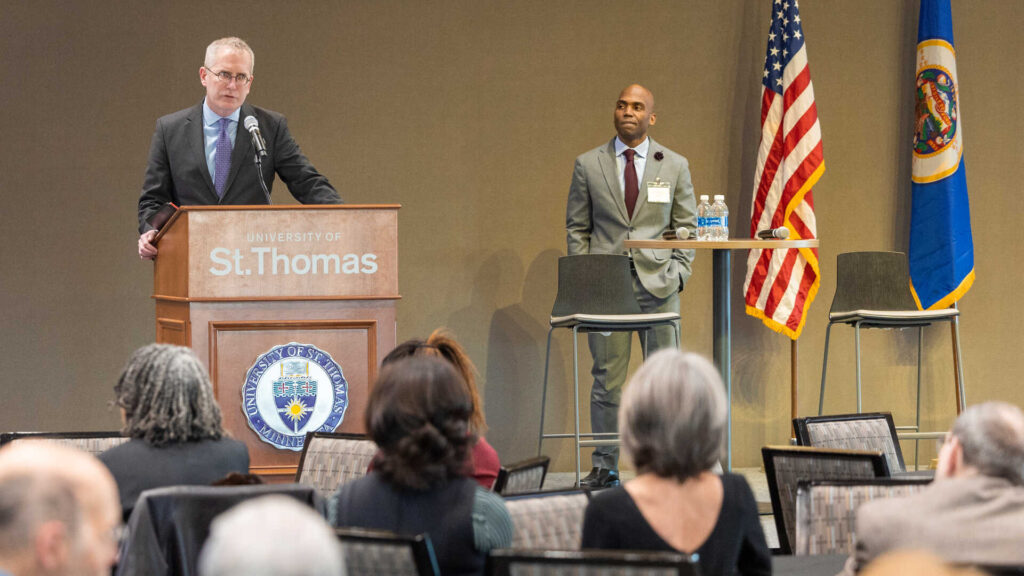President Julie Sullivan shared the following in an email with faculty and staff.
I hope you and your family are healthy and well. Amid this pandemic, I clearly see and am inspired by the care, compassion and resiliency our St. Thomas community is demonstrating.
I am proud that we are continuing to put students at the center of our mission. We prioritized establishing a hardship fund for students funded by donors and employees that will be supplemented by federal aid. We are answering the call to accompany our students through this crisis.
There is much uncertainty that stems from COVID-19. I know you feel it in your personal lives, as well as in the ways you teach, work and interact with each other. Despite this uncertainty, we must prepare St. Thomas for the future and manage our operations and finances to the best of our ability to maintain our high-quality student experience.
Although we do not have all the answers about how severely this virus will impact our operations and our budget, I want to share with you what we do know at this point. Today, I will address the short-term financial impact of COVID-19 on our current budget year and how we are approaching scenario planning for the uncertainties of the fall. I also will describe the leadership principles that are guiding us as we make difficult decisions that will help St. Thomas emerge from this crisis as a thriving institution.
Leadership Principles
As we make decisions, our leaders will above all else look to our Catholic convictions and mission to educate morally responsible leaders who think critically, act wisely and work skillfully to advance the common good. Our leaders will:
- Safeguard the health and safety of our students, faculty and staff.
- Prioritize our students and our commitment to providing them a high-quality, personalized education that focuses on the whole person and develops moral leaders ready to encounter the world.
- Take impactful, meaningful actions rather than incremental, small steps.
- Require shared sacrifice among all employees, including administrators, faculty and staff; and reinforce that we are all in this together.
- Communicate openly, compassionately and regularly and in a timely manner to the community.
- Transcend this moment of crisis to discover and implement how our strengths can differentiate us in a new world context.
Immediate Next Steps
The financial impacts of the COVID-19 pandemic are very serious and require that we immediately take disciplined steps to close out the current fiscal year ending June 30. Unfortunately, we have already experienced an $8 million revenue shortfall in spring semester alone due to COVID-19. We expect next fiscal year to be even more difficult financially. The following decisions will be implemented immediately to provide some financial stability in the short term:
- First, our senior leadership team and I are reducing our salaries. Executive Vice President and Provost Richard Plumb, Chief Financial Officer Mark Vangsgard and I will take a 15% salary reduction from May 15 through Dec. 31, 2020. In addition, the President’s Cabinet is joining us and will take a 10% salary reduction during that same time period.
- There will be no compensation increases for staff and faculty in fiscal year 2021.
- We will transition from the current hiring pause to a university-wide hiring freeze until further notice.
- All university-sponsored travel is suspended through July 31, 2020. From Aug. 1 through Dec. 31, any university-sponsored faculty travel must be deemed essential and approved by the provost. Deans will work with faculty members whose progress toward tenure may be affected by travel restrictions. All other essential university-sponsored travel must be approved by the appropriate cabinet member.
- We will reduce discretionary spending across the university. Any spending by departments above $5,000 will require the approval of the appropriate cabinet member.
- Except for approved projects that ensure the safety and security of our campus community, spending on capital projects will be deferred until further notice. Major construction projects that are in process, including the Iversen Center for Faith and the two new residence halls, will continue through completion.
These immediate mitigation strategies are difficult but necessary. Yet, they will not be enough to ensure our commitment to educational excellence for our students. As we journey into the summer and plan for the fall, additional cost-cutting strategies will have to be employed.
Future Scenarios
In order to plan for the mid- and long-term impacts of COVID-19, I have appointed a Scenario Planning Steering Committee, co-chaired by Richard Plumb and Mark Vangsgard, which will undertake two important goals. First, the committee will provide guidance to me on additional decisions that ensure our financial health and viability. Second, the committee will prepare St. Thomas to adapt and thrive in a post-COVID world.
The steering committee will work vigorously with existing teams across campus to determine impacts of a range of possible scenarios and to recommend actions. Scenarios for fall could include:
- Social distancing is lifted this summer, and we resume on-campus classes and residence hall living.
- Society is operating under social distancing protocols, and we resume in-person classes and operations with limited personal contact.
- We are unable to begin in-person classes and operations as scheduled, and resume activities on campus later in the semester.
- We begin in-person classes and operations, and COVID-19 returns during the semester.
- We operate completely online.
The group also will help me look to the future and determine how St. Thomas can adapt to emerge from COVID-19 as a flourishing university. I strongly believe that new opportunities to enhance how we educate, expand whom we serve, improve the student experience and reconsider how we work will emerge from this crisis.
My Commitment to Communicate
Given the uncertainty under which we are operating, enhanced and regular communication with faculty and staff will be a top priority. By May 1, we will have more information to share with you about our planning, and I commit to communicate with you on a regular basis as our scenario planning continues to progress.
Although I cannot pretend to know exactly when our “normal” activity will resume, I can tell you that we will not be going back to the same “normal.” Together, we will find a new normal; one that allows us to fulfill our mission in a post-COVID world and helps us remain strong and vibrant into the future.
Challenging times often help us clarify our priorities and enhance our gratitude for what we value and cherish. My priority is to hold our community close during this challenge and emerge with you together as a stronger university.
